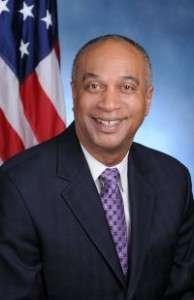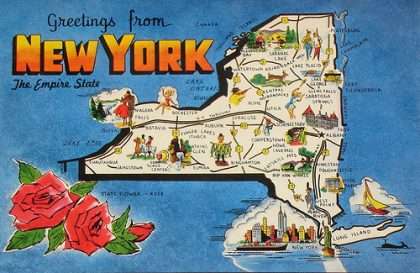NY State Assemblyman Gary Pretlow Criticizes RAWA
One of online poker’s biggest supporters in the New York state legislature recently spoke out against those in the US Congress attempting to banish the game. State Assemblyman J. Gary Pretlow (D – 89th), chairman of the New York State Assembly Racing and Wagering Committee, penned an op-ed for political website RollCall.com urging members of the U.S. Congress to reject Sheldon Adelson’s Restoration of America’s Wire Act (RAWA).
In the piece, posted to the Roll Call blog on July 23rd, Pretlow called the notion that some legislators on Capitol Hill would support RAWA, a bill which intends to completely ban online gambling in the United States, “particularly troubling.”

New York State Assemblyman J. Gary Pretlow
Opponents of online gambling often say that there is no technology that exists that can effectively keep minors off of gaming sites and be sure that players are located within the jurisdiction in which internet gambling is permitted. Pretlow dismissed these statements, citing neighboring New Jersey and Delaware’s successes so far. “….the security technology they have employed has not only kept gaming safe within their borders, it has created a legal system where law enforcement can crack down on the fraud and any other illegal activity that currently runs rampant in the robust online black market,” he wrote.
Though Pretlow’s legislative focus right now is on internet poker, he is also very concerned with what RAWA would do to his state’s lottery. “RAWA would ban online lotteries, risking education dollars in New York and over a dozen other states around the country,” he said.
According to Pretlow, the lottery provided $3.11 billion to fund education in the 2014-2015 fiscal year, an amount that comprises 14 percent of the state’s total education funding. Much of that would certainly still be viable should RAWA pass, as most people still buy lottery tickets at brick-and-mortar locations such as gas stations, convenience stores, and grocery stores, but eliminating New York’s online subscription option would hurt, not to mention the future revenue growth online lottery sales could see.
Later in the article, Pretlow echoed the same anti-prohibition sentiments most of us have recited before:
Prohibition doesn’t work, it merely exposes children and consumers to a system primed to exploit them. What does work? A well-regulated and highly advanced system based on secure technology and fully integrated with our law enforcement’s needs. New Jersey’s geolocation technology has been enormously successful and has ensured that users are of legal age and within the borders of the state. Were RAWA to pass, we’d have no such technology to help keep vulnerable consumers safe.
He concluded:
The equation should be simple: if we can find a way to promote economic growth and protect consumers, we should do it. New York, and every state, deserves to be able to determine what gaming exists within its borders and how it is regulated — we always have had that right and it defies logic that Congress would step in now to undercut it. Congress should focus on the things that will help states, not those policies that aim to take away our power to do right by our constituents.
Pretlow introduced an online poker bill into the state Assembly in 2014, but it went nowhere. In the bill, he specifically pointed out how poker was different from other forms of gambling in that it is predominantly a game of skill. New York law defines games of chance – which are illegal – as games in which “the outcome depends in a material degree upon an element of chance.”
Pretlow’s bill would have legalized Hold’em and Omaha, “complex forms of poker which involve player strategy and decision-making.”
He added:
The legislature further finds that as the internet has become an integral part of society, and internet poker a major form of entertainment for many consumers, any interactive gaming enforcement and regulatory structure must begin from the bedrock premise that participation in a lawful and licensed gaming industry is a privilege and not a right, and that regulatory oversight is intended to safeguard the integrity of the games and participants and to ensure accountability and the public trust…
In May New York State Senator John Bonacic (R-42nd) made another attempt to legalize internet poker (he sponsored a twin bill to Pretlow’s in the Senate last year), introducing S5302. It is largely the same as his 2014 bill, though it did get rid of the “bad actor” clause, which would allow sites such as PokerStars who continued to accept U.S. customers after the passing of the UIGEA to apply for a gaming license.
Bonacic’s bill also aims to redefine the state’s definition of gambling, changing it to read, “Contest of chance” means any contest, game, gaming scheme or gaming device in which the outcome depends [in a material degree] PREDOMINANTLY upon an element of chance, notwithstanding that skill of the contestants may also be a factor therein.”

















COMMENTS